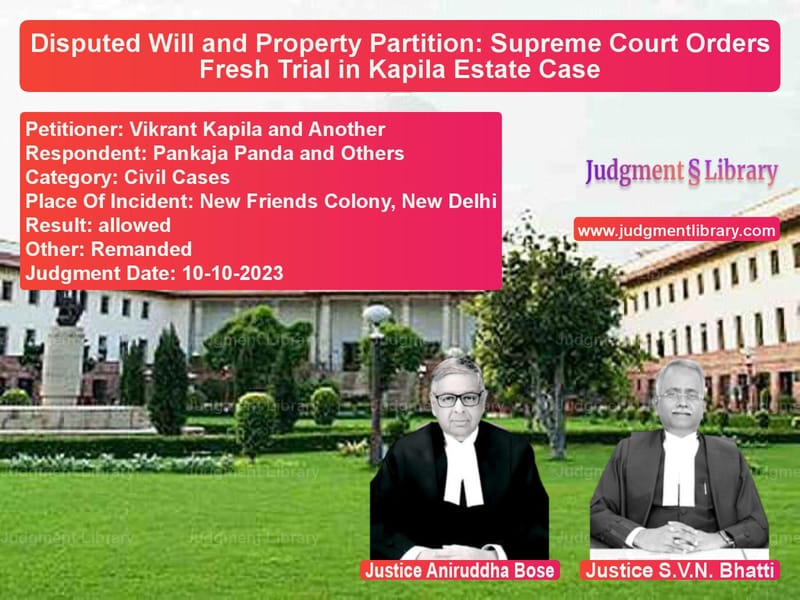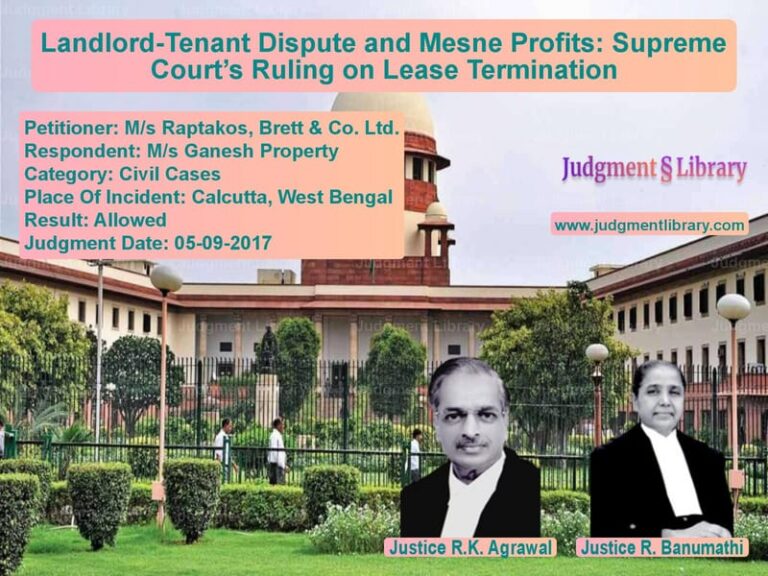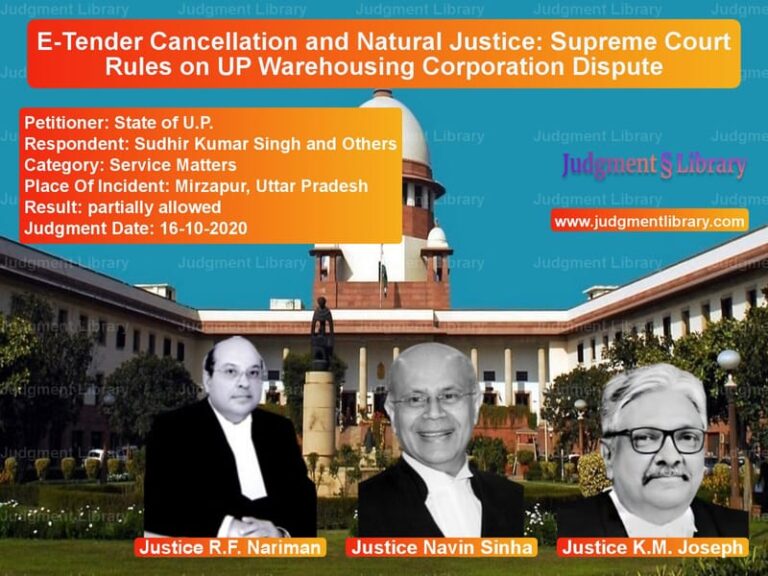Disputed Will and Property Partition: Supreme Court Orders Fresh Trial in Kapila Estate Case
The Supreme Court of India recently delivered a crucial judgment concerning the partition of a property in New Friends Colony, New Delhi, following a dispute over intestate versus testamentary succession. The case revolved around the alleged Will of Late Sheila Kapila, whose four children and grandchildren contested the rightful claim over the property.
Background of the Case
The suit was initiated by Pankaja Panda and others, seeking partition, separate possession, and an injunction concerning the property owned by Late Sheila Kapila. She passed away intestate on April 8, 2003, as per some family members, while others claimed she left a Will dated November 18, 1999.
The plaintiffs, including the grandchildren of Sheila Kapila, asserted their right to one-fourth of the property as co-owners. Meanwhile, the contesting defendants, Vikrant Kapila and another, claimed that the property should be divided per the alleged Will, granting only a life interest to the direct children, with absolute ownership passing to the grandchildren.
Key Issues in the Dispute
The primary question before the Court was whether the property was to be inherited through intestate succession or under the terms of the alleged Will. The plaintiffs contested the authenticity of the Will, whereas Defendant Nos. 4 and 5 argued for its validity.
Arguments by the Petitioner
The plaintiffs contended:
- Sheila Kapila died intestate, and the property should be inherited equally by her children.
- The Will produced by Defendant Nos. 4 and 5 was not genuine, as no original copy had been furnished.
- Even if the Will were valid, it granted absolute ownership to Sheila Kapila’s children, making them entitled to sell the property and distribute proceeds.
Arguments by the Respondents
The contesting defendants, Vikrant Kapila and another, argued:
- The Will of 1999 explicitly granted only a life interest to Sheila Kapila’s children.
- The property could not be partitioned or sold by the immediate heirs.
- Upon the demise of Dr. Rajendra Kapila (one of the heirs), his share would devolve onto his children, per the Will.
High Court’s Judgment
The High Court of Delhi ruled in favor of the plaintiffs, affirming that:
- The Will had not been proved as per law, and Sheila Kapila was assumed to have died intestate.
- The property should be divided equally among the four children.
- Since the property could not be divided by metes and bounds, it should be sold, and the proceeds distributed.
Supreme Court’s Observations
The Supreme Court noted critical legal errors in the High Court’s ruling:
“The kernel of the matter is what Sheila Kapila left behind after her demise; (a) the suit property, (b) children and grandchildren. The succession to the Suit Property, whether intestate or testamentary, would be the principal issue for adjudication.”
It further observed that:
- The High Court had erroneously assumed that there was no dispute about the existence of the Will.
- The alleged Will had not been proved as per the Indian Succession Act and the Evidence Act.
- The matter required a full-fledged trial to determine the rightful inheritance.
Supreme Court’s Ruling
The Supreme Court set aside the High Court’s judgment and ordered a fresh trial. It directed:
- The case be remanded to the trial court for a full trial.
- The sale of the property be conducted under the supervision of a local commissioner.
- The proceeds of the sale be held in court until rightful heirs are determined.
- All parties should have the opportunity to present evidence regarding the validity of the Will.
“The judgment on admission is an illegal exercise of discretionary jurisdiction under Order XII Rule 6 read with Order XV Rule 2 of the CPC. The case presents triable issues in facts and law.”
Conclusion
The Supreme Court’s ruling underscores the importance of adhering to proper legal procedures in property succession disputes. By remanding the case for a full trial, the Court has ensured that all parties have a fair opportunity to establish their claims, particularly regarding the authenticity and execution of the disputed Will.
Petitioner Name: Vikrant Kapila and Another.Respondent Name: Pankaja Panda and Others.Judgment By: Justice Aniruddha Bose, Justice S.V.N. Bhatti.Place Of Incident: New Friends Colony, New Delhi.Judgment Date: 10-10-2023.
Don’t miss out on the full details! Download the complete judgment in PDF format below and gain valuable insights instantly!
Download Judgment: vikrant-kapila-and-a-vs-pankaja-panda-and-ot-supreme-court-of-india-judgment-dated-10-10-2023.pdf
Directly Download Judgment: Directly download this Judgment
See all petitions in Property Disputes
See all petitions in Succession and Wills
See all petitions in Specific Performance
See all petitions in Legal Malpractice
See all petitions in Contract Disputes
See all petitions in Judgment by Aniruddha Bose
See all petitions in Judgment by S.V.N. Bhatti
See all petitions in allowed
See all petitions in Remanded
See all petitions in supreme court of India judgments October 2023
See all petitions in 2023 judgments
See all posts in Civil Cases Category
See all allowed petitions in Civil Cases Category
See all Dismissed petitions in Civil Cases Category
See all partially allowed petitions in Civil Cases Category







